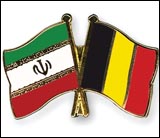 A superseding indictment was released last week that charged a Belgian citizen and resident with violating U.S. export laws by transshipping items from the United States to Iran through Belgium. This indictment is, in many respects, typical of the increasing prosecutions of foreigners for export activities occurring in those foreign countries. Willy A.E. De Greef is accused of taking orders from Iranian customers for helicopter and aircraft parts, sourcing those parts from U.S. suppliers, shipping the parts to Belgium and then shipping them on to Iran. Several things about the indictment, however, are interesting.
A superseding indictment was released last week that charged a Belgian citizen and resident with violating U.S. export laws by transshipping items from the United States to Iran through Belgium. This indictment is, in many respects, typical of the increasing prosecutions of foreigners for export activities occurring in those foreign countries. Willy A.E. De Greef is accused of taking orders from Iranian customers for helicopter and aircraft parts, sourcing those parts from U.S. suppliers, shipping the parts to Belgium and then shipping them on to Iran. Several things about the indictment, however, are interesting.
First, the indictment charges Degreef with money laundering under 18 U.S.C. § 1956 based on the wiring of funds from Belgium to the United States to pay for the parts ultimately shipped to Iran. Of course, this doesn’t sound like the traditional notion of money laundering, but even so one part of the money laundering statute appears to cover such wire transfers even though there was no attempt to launder the money to conceal that the money represents the proceeds of a criminal activity. Section 1956(a)(2)(A) prohibits the transmission of money from outside the United States into the United States for purposes of carrying on “specified unlawful activity.” One such activity specified by the statute is violation of the export laws.
Second, the indictment also charges Degreef with wire fraud in violation of 18 U.S.C. § 1343. The wire fraud charges are based on emails allegedly sent by De Greef to the U.S. suppliers in which De Greef claimed the products would not be shipped to Iran.
 Permalink
Permalink
Copyright © 2011 Clif Burns. All Rights Reserved.
(No republication, syndication or use permitted without my consent.)

 Posted by
Posted by  Category:
Category: 

